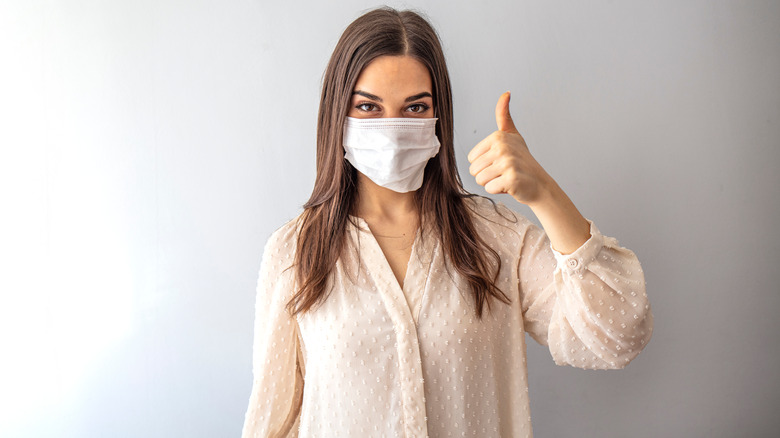Is Monkeypox Airborne?
With dozens of monkeypox cases now documented in the United States, there is concern about how it can be transmitted, reports Healthline. Unlike the COVID-19 virus that rapidly spread across the globe, monkeypox has been found to be less contagious and unlikely to be spread at the same rate. Monkeypox has also been found to be unlikely to be transmitted through airborne means, though there is still a possibility for airborne transmission since scientists are in the process of learning about the virus. A lot of the speculation has come from possible mutations within the virus as it has spread.
According to Newsweek, recent cases of monkeypox have been found to be different from original cases documented in Western and Central Africa. Until recently, physical contact was believed to be the primary means of transmission. However, as the virus has spread in this current outbreak, there is speculation of airborne transmission.
Again, the risk of airborne transmission is still considered unlikely, but it isn't impossible. The most likely means of transmission remains physical touch. Per Healthline, the CDC reports that all cases of monkeypox that they have examined in this current outbreak have been traced to physical contact. However, it is still a good idea to learn how to protect yourself from airborne illnesses in general.
Prevention of airborne illnesses
Airborne transmission of illnesses occurs when microorganisms pass from one person to another through the air, such as through coughing, sneezing, or otherwise expelling aerosolized particles into the air (via Medical News Today). Microorganisms that can be transmitted through airborne means include viruses, bacteria, and fungi, and they can even be transmitted through dust after the aerosolized particles settle onto surfaces.
To protect yourself from contracting an airborne illness, steps you can take include wearing a mask when indoors around others, avoiding contact with people known to be sick, and coughing or sneezing into your elbow instead of into your hands (per Healthline). Maintaining a healthy lifestyle through diet and exercise can be preventive measures that keep you from becoming vulnerable to illness, suggests Harvard Health Publishing.
WebMD advises frequently washing your hands, especially for 20 seconds or longer, and avoiding touching your face. Sufficient ventilation of indoor locations is another key component of keeping viruses and bacteria out of enclosed spaces. Always be aware of the local health recommendations in your area and consult with your healthcare provider if you have concerns about prevention or illness.


